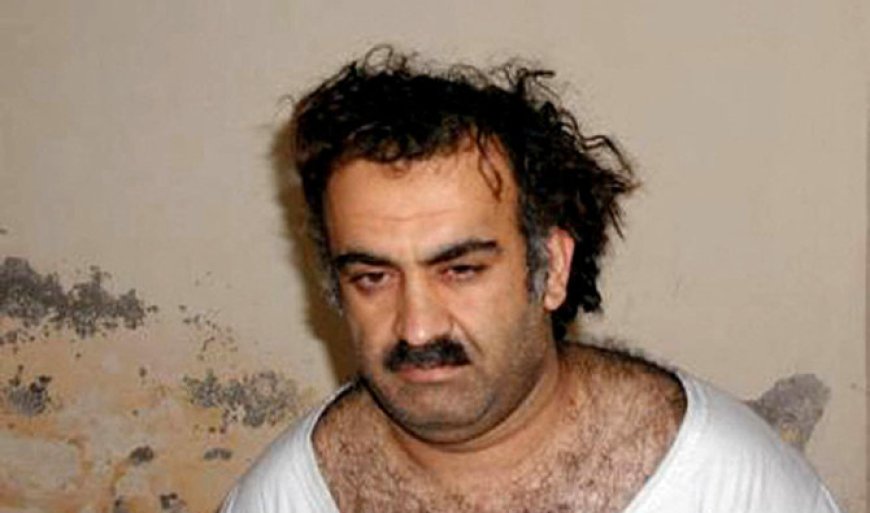Khalid Sheikh Mohammed, 9/11 Mastermind, Agrees to Plea Deal

WASHINGTON: Khalid Sheikh Mohammed, identified as the principal architect behind the September 11, 2001, terrorist attacks, has agreed to plead guilty, according to the U.S. Defense Department.
This resolution, more than two decades after the devastating attacks that reshaped American and global landscapes, brings a significant development in the long-standing quest for justice. Alongside Mohammed, co-defendants Walid Bin Attash and Mustafa Al-Hawsawi are also expected to enter guilty pleas at the military commission in Guantanamo Bay, Cuba, potentially as soon as next week.
The plea agreements follow protracted legal proceedings marked by controversies, including the use of torture during interrogations, which has complicated the judicial process. The specific terms of the agreements, however, remain undisclosed to the public.
Relatives of 9/11 Victims Respond
Terry Strada, head of 9/11 Families United, a group representing the families of victims, expressed mixed emotions upon hearing the news. "They were cowards when they planned the attack," she remarked about the defendants. "And they’re cowards today."
Michael Burke, another family member who lost his brother Billy, a fire captain, in the North Tower's collapse, voiced his frustration at the lengthy wait for justice. “It’s disgraceful that these men, 23 years later, have not been convicted and punished for their attacks,” he stated. Burke also criticized the plea deal, suggesting it fell short of the justice he and other families had long anticipated.
Pentagon and Legal Challenges
The Defense Department's refusal to release the full terms of the plea bargains underscores the sensitive nature of these agreements. Pentagon officials have faced significant challenges in the prosecution due to the inadmissibility of evidence obtained through coercive interrogation techniques, including the waterboarding of Mohammed.
Historical Context
Captured in 2003, Khalid Sheikh Mohammed has been at the center of the 9/11 investigation. He allegedly conceived the plan to use hijacked planes as weapons, receiving approval from Al-Qaeda leader Osama bin Laden. The 9/11 attacks killed nearly 3,000 people and led to a series of consequential events, including the U.S. invasions of Afghanistan and Iraq, which profoundly altered the geopolitical landscape.
The attacks spurred a nationwide response termed the "war on terror," initiated by President George W. Bush’s administration, resulting in extensive military operations against extremist groups in the Middle East. The aftermath also saw a significant shift in American society towards heightened militarism and nationalism.
Human Rights Perspective
Daphne Eviatar, a director at Amnesty International USA, acknowledged the accountability brought by the plea deals but reiterated calls for closing the Guantanamo Bay detention center. Eviatar emphasized the need for the Biden administration to ensure that the U.S. never again engages in torture and other forms of ill-treatment.
Implications for Guantanamo Bay
The plea deals may represent a pivotal moment for Guantanamo Bay, where numerous detainees, cleared for release, remain in limbo. The detention facility, a symbol of post-9/11 counterterrorism policies, has been criticized for its legal and ethical implications.













































